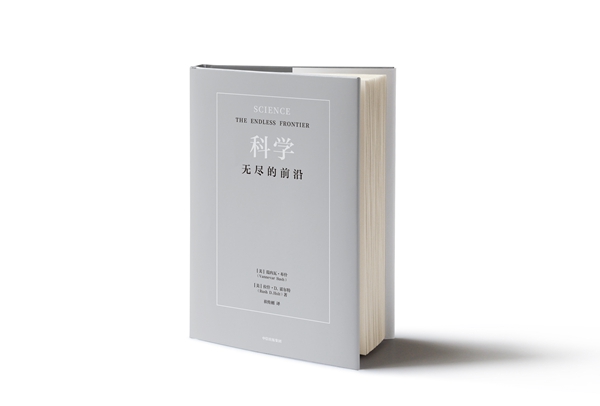
Science is the key to growth, expert says, on anniversary of document that helped shape US policy, Fang Aiqing reports.
A key document establishing the foundation of science policies in the United States seven decades ago has been reprinted in China.
Science, the Endless Frontier was a report by Vannevar Bush, then-president Franklin Roosevelt's informal science consultant, responding to the president's concern on keeping the country's scientific and technological advantages in peacetime after World War II.
Last year marked the 75th anniversary of the publication of the report and the 70th anniversary of the founding of the National Science Foundation, which was first proposed and framed in Bush's report and was approved by President Harry Truman after years of debate in 1950.
The commemoration resulted in another wave of attention and discussion on the report and the Princeton University Press reissued the English version in February.
The new version keeps Bush's intact texts to Truman in July 1945, following Roosevelt's death in office. But the original appendices were removed. These comprised reports by various committees Bush had consulted before and during the drafting of the report.
It also includes a companion essay titled The Science Bargain from physicist and former congressman Rush Holt commenting on the report's legacy and inadequacy and proposing what democracy needs most from science today.
Zhang Biao, editor of the Chinese version from the CITIC Press Group, says the republication of the book is a response to today's practical needs considering that the country still relies a great deal on basic science research achievements in other countries and faces a stranglehold in many key areas.
Scientific development ideas and the US path described in Bush's report is of great significance, Zhang says. "It is important for us to learn from foreign experience and optimize it in combination with domestic conditions."
The report was once published in 2004 in China, and this new Chinese version invites players in cutting-edge scientific fields and the economy and financial sector such as Huawei CEO Ren Zhengfei, Hu Yu, co-founder of iFlytek, and economist Xiang Songzuo to give some further words toward the topic.
"Bush's report has presented the essence of scientific and technological innovation and the consensus and spirit of the industry-university-research community," Hu writes.
Wu Wencong, from the Chinese branch of Princeton University Press, says that before the launch of the Chinese version, the English version has already stirred up a splash on domestic e-commerce platforms.
Bush served as director of the Office of Scientific Research and Development during the World War II.
Under his supervision, key scientific achievements such as the application of antibiotics, as well as the invention of radar and the development of the atomic bomb were promoted.
At the end of 1944, Roosevelt wrote to Bush asking for recommendations regarding the disclosure and dissemination of wartime science to be converted to civilian use.
In the report, Bush especially stressed the importance of basic scientific research-he perceived it as "scientific capital"-that was performed without thought of practical ends and resulted in general knowledge and an understanding of nature and its laws, saying the US could no longer depend on Europe as a major source of such knowledge.
Meanwhile, as basic scientific research, with the lack of guaranteed profits, would unlikely be welcomed by private sectors.
Therefore, Bush proposed to set up an independent agency dedicated to the support of scientific research and advanced scientific education and listed five fundamental principles for it. This became the National Science Foundation.
Holt writes in his essay that Bush's report clarified the importance of science in delivering more jobs, better standards of health and living, as well as greater national security.
However, he claims there has been insufficient federal research funding in recent years and is taking a wait-and-see attitude toward the Innovation and Competition Act, which the US Senate passed on Wednesday, formerly the Endless Frontier Act. This is meant to bolster US leadership in science and technology to counter what Washington views as a technological challenge from China.
Holt also points out that while stressing scientists' control over their research programs, Bush had overlooked the importance of general public's science awareness and therefore failed to build their scientific thinking, which was especially demonstrated in battle against the COVID-19 pandemic and in how the country tackles climate change.
China's current research situation-utilitarian-oriented and disregarding basic research and education-is just like what was in the US before World War II, Ren writes.
"The difficulty Huawei faces today is not that there's anything wrong to rely on the global platform to strive for breakthroughs in strategic direction, but that the advanced chips we've designed cannot be produced by domestic industries yet. It's impossible for us to make both products and chips," he writes.
